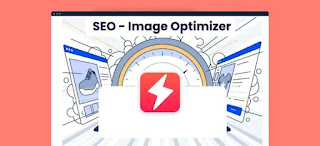Website Development for Beginners: Getting Started
In today’s digital age, having a strong online presence is no longer a luxury — it’s a necessity. For businesses of all sizes, a well-developed website, engaging social media management channels, and ongoing website management are the cornerstones of attracting and retaining customers. But navigating these three areas can feel overwhelming. This blog post will break down each element and explain how they work together to propel your business forward.
Website
Development: Building Your Digital Home
Your website is your online
storefront, your digital brochure, and a vital communication tool. Website
development involves planning, building, and launching a website that reflects
your brand identity and caters to your target audience.
Planning:
This stage involves defining your
website’s goals, target audience, and desired functionalities. What do you want
visitors to do on your site? Will you have an online store, a blog, or just a
simple information page? Understanding these aspects helps create a website
that serves your specific needs.
Building:
Here, the technical magic happens.
Developers use programming languages and content management systems (CMS) like
WordPress to bring your website vision to life. They ensure a user-friendly
design, mobile responsiveness, and optimal functionality.
Launching:
Once the website is built and
tested, it’s time to go live! This stage involves ensuring proper domain name
registration, web hosting, and search engine optimization (SEO) to make your
website discoverable online.
Social
Media Management: Engaging Your Audience
Social media platforms offer a
dynamic way to connect with your audience, build brand awareness, and drive
traffic to your website. Effective social media management involves creating
engaging content, scheduling posts, interacting with followers, and monitoring
performance.
Content
Creation:
This involves developing posts,
visuals, and videos that resonate with your target audience. Social media
thrives on fresh, informative, and entertaining content that sparks
conversations and shares.
Scheduling
& Posting:
Maintaining a consistent posting
schedule is crucial for keeping your audience engaged. Social media management
tools can help streamline scheduling posts across various platforms.
Engagement:
Respond to comments, participate in
discussions, and answer questions promptly. Building relationships with your
audience fosters loyalty and trust.
Performance
Monitoring:
Track key metrics like reach,
engagement, and website traffic to understand what resonates with your audience
and adapt your strategy accordingly.
Website
Management: Keeping Your Digital Home Up-to-Date
A website is not a static entity.
Regular website management is essential for maintaining a positive user
experience and ensuring optimal performance. This includes:
Content
Updates:
Regularly updating content keeps
your website fresh and informs visitors about new products, services, or
promotions.
Security
Updates:
Keeping your website’s software and
plugins updated protects it from security vulnerabilities and ensures smooth
operation.
Performance
Monitoring:
Track your website’s loading speed,
responsiveness, and user experience with analytics tools. Address any issues
promptly to maintain optimal performance.
Backups:
Regularly backing up your website
data protects you from data loss in case of technical issues.
The
Synergy: How They Work Together
These three elements — website
development, social media management, and website management — work in tandem to create
a powerful online presence.
- Your website serves as the central hub, providing
detailed information about your business, products, and services.
- Social media drives traffic to your website by creating
awareness, interest, and excitement for your brand. Targeted social media
campaigns can attract potential customers and guide them towards your
website, where they can learn more and take action (e.g., contact you,
make a purchase).
- Effective website management ensures your website is
optimized, secure, and user-friendly, converting visitors into leads and
customers.
By integrating these three aspects
into a cohesive online strategy, you can establish a strong digital foundation
for your business.
Getting
Started: Tips & Resources
Do
your research:
Identify your target audience,
understand their online behavior, and research your competitors’ online
presence.
Set
realistic goals:
Define what success looks like for
your website and social media channels. Do you want to increase brand
awareness, generate leads, or boost sales?
Consider
outsourcing:
There are many talented website
developers, social media managers, and website management services available.
Consider your budget and expertise when deciding whether to handle these tasks
in-house or outsource.
There are numerous online resources
available to help you with each aspect:
Website
development:
Platforms like WordPress offer
user-friendly website building tools. There are also online courses and
tutorials to teach you the basics of web development.
Social
media management:
Many social media platforms offer
built-in analytics tools and scheduling functionalities.
The digital landscape is a powerful
tool for business growth. By harnessing the combined strengths of website development, social media management,
and website management, you can create a dynamic online presence that attracts
new customers, fosters brand loyalty, and ultimately drives success. Remember,
a well-developed website is your digital home, social media is your
conversation starter, and website management is the ongoing care that keeps
everything running smoothly. Invest in these three elements, and watch your
online presence flourish!

.jpg)
.jpg)

Comments
Post a Comment